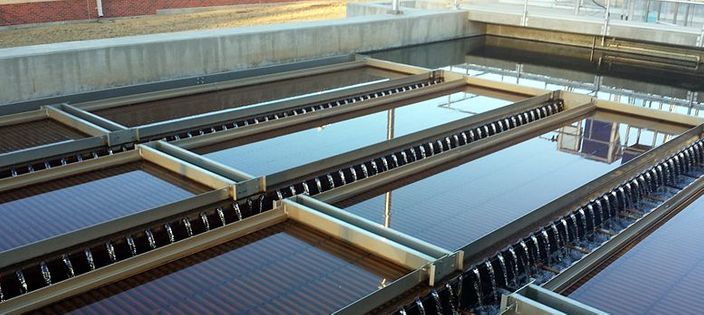Feds reject Fort Smith’s effort to reduce consent decree requirements
by September 8, 2021 4:25 pm 4,437 views

The United States Department of Justice (DOJ) and the U.S. Environmental Protection Agency (EPA) responded to an appeal by the city of Fort Smith concerning the consent decree the city is under for its sewer infrastructure, saying the city must repair all Grade 4 and 5 pipe segments and manholes in the system.
After years of failing to maintain water and sewer infrastructure to federal standards, the city entered into a federal consent decree with the EPA and DOJ in late 2014. The consent decree required the city to make an estimated $480 million worth of sewer upgrades over the course of 12 years. Because of inflation and the state of the city’s sewer system, that number is estimated to be closer to $650 million.
Over the past six years, the city has spent approximately $127 million in capital costs for required improvements added to the $200 million on storage tanks and equalization basins to reduce wet weather sanitary sewer overflows, the basis for the consent decree requirements, spent prior to the consent decree.
In May 2020, the EPA and the Arkansas Department of Environmental Quality (ADEQ) agreed that the city has proved that the sewer improvement program will be “inordinately expensive, accordingly, qualified for an additional five years of implementation time.” The city received an additional five years added to the 12 in the order to implement changes. Because almost six years have passed, that means the city has 11 years to complete the improvements, said Paul Calamita, with Richmond, Va.-based AquaLaw, the firm hired by the city to help with legal relief.
Along with the five-year extension, the EPA and ADEQ agreed to provide additional flexibility with certain interim program deadlines that will allow Fort Smith the ability to stretch out expensive system improvements over the whole of the remaining program implementation schedule, according to the update to the decree provided by the city in 2020.
An attempt by the city to remove the category four and five lines, which according to McAvoy may not need to be repaired for many years, was blocked by U.S. District Judge P.K. Holmes III. Calamita believes that decision is appealable because of legal issues. If that decision were to be reversed on appeal, it could save the city between $100 million and $150 million.
The response drafted by DOJ and EPA and filed Aug. 26 said the “district court correctly rejected the City’s interpretation, concluding instead that the City must repair or replace Grade 4 and 5 pipe segments and manholes, an interpretation that furthers the Decree’s stated objective of eliminating all sanitary sewer overflows (SSOs) from the City’s wastewater collection and transmission system.” They noted they had consulted with the State of Arkansas in preparing this brief.
A Grade 5 pipe segment is described as one that “has failed or will likely fail within the next five years. Pipe segment requires immediate attention.” A Grade 5 manhole is described as one where “failure has already occurred or is likely to occur.” A Grade 4 pipe segment is described as one that “has severe defects with the risk of failure within the next five to ten years.” A Grade 4 manhole is described as having cracks, deterioration or visible deformities.” By comparison, Grade 1, 2, and 3 pipe segments and manholes have less severe defects.
The response states, “by selectively leaving some of the most severe defects in its wastewater collection and transmission system unrepaired for an open-ended period of time, the City’s interpretation (of only monitoring the Grade 4 and 5 defects rather than repairing them) would lead to more SSOs, an outcome contrary to the plain text of the Decree’s ‘objectives’ provision, which includes ‘the goal of eliminating all SSOs.’”
City Administrator Carl Geffken said Tuesday (Sept. 7) the city will now draft a response to the response filed by the United States. Then the court will decide what is next, he added.
